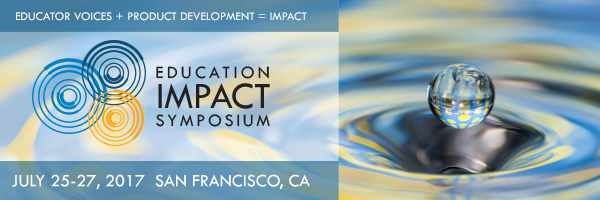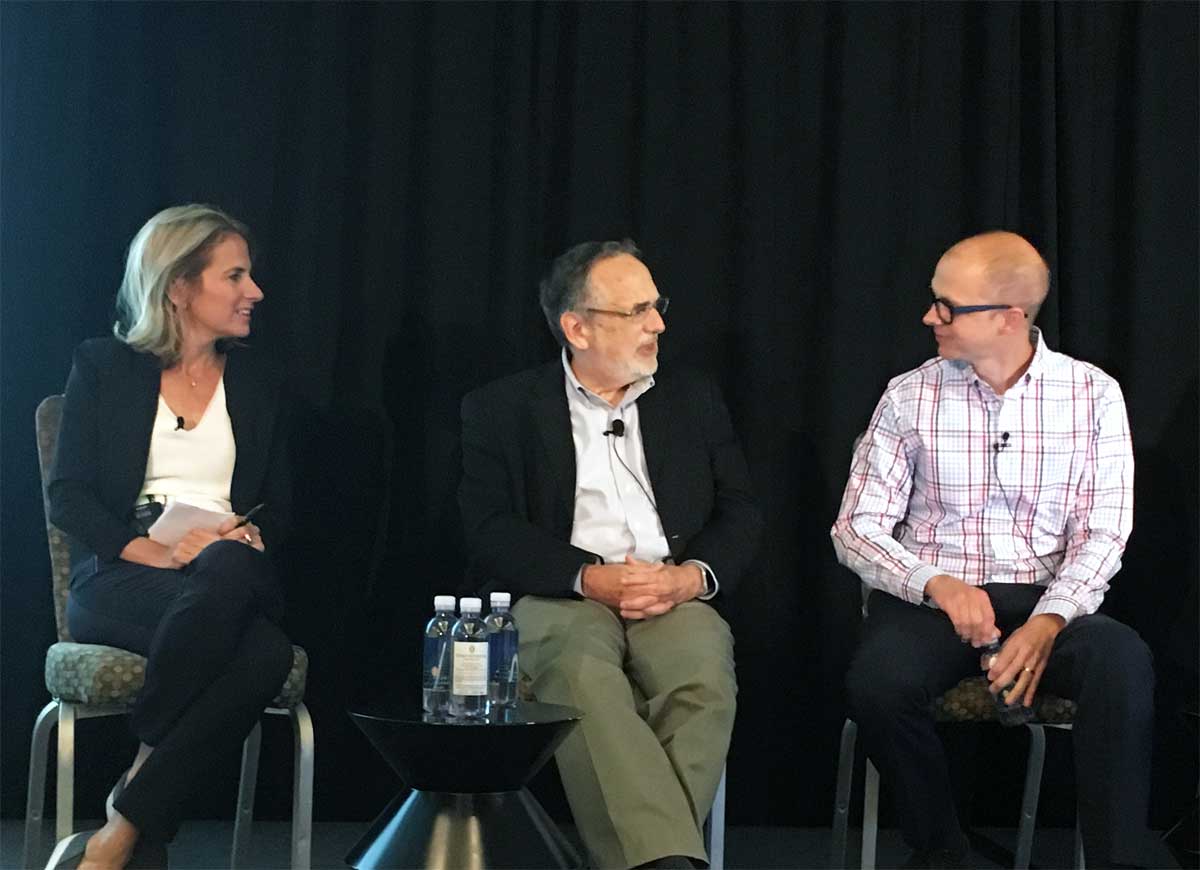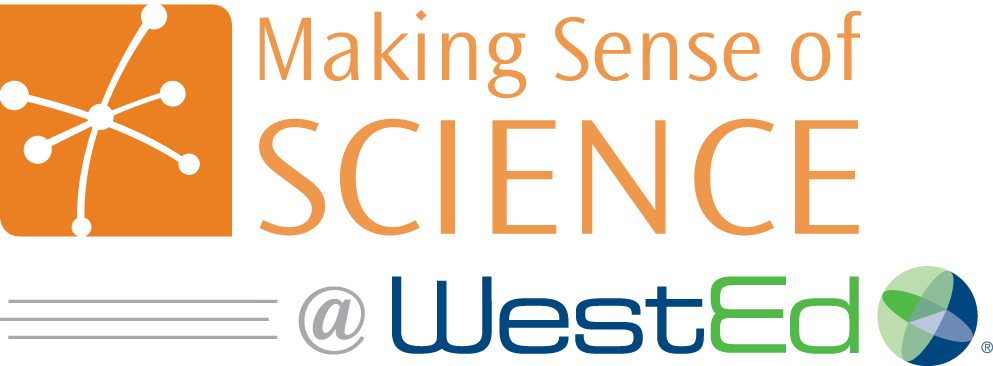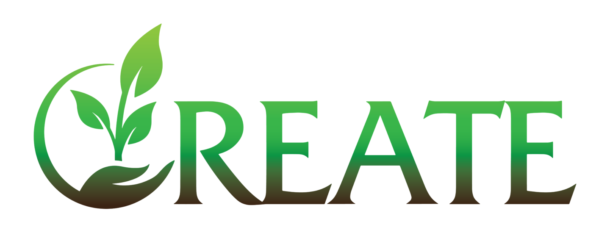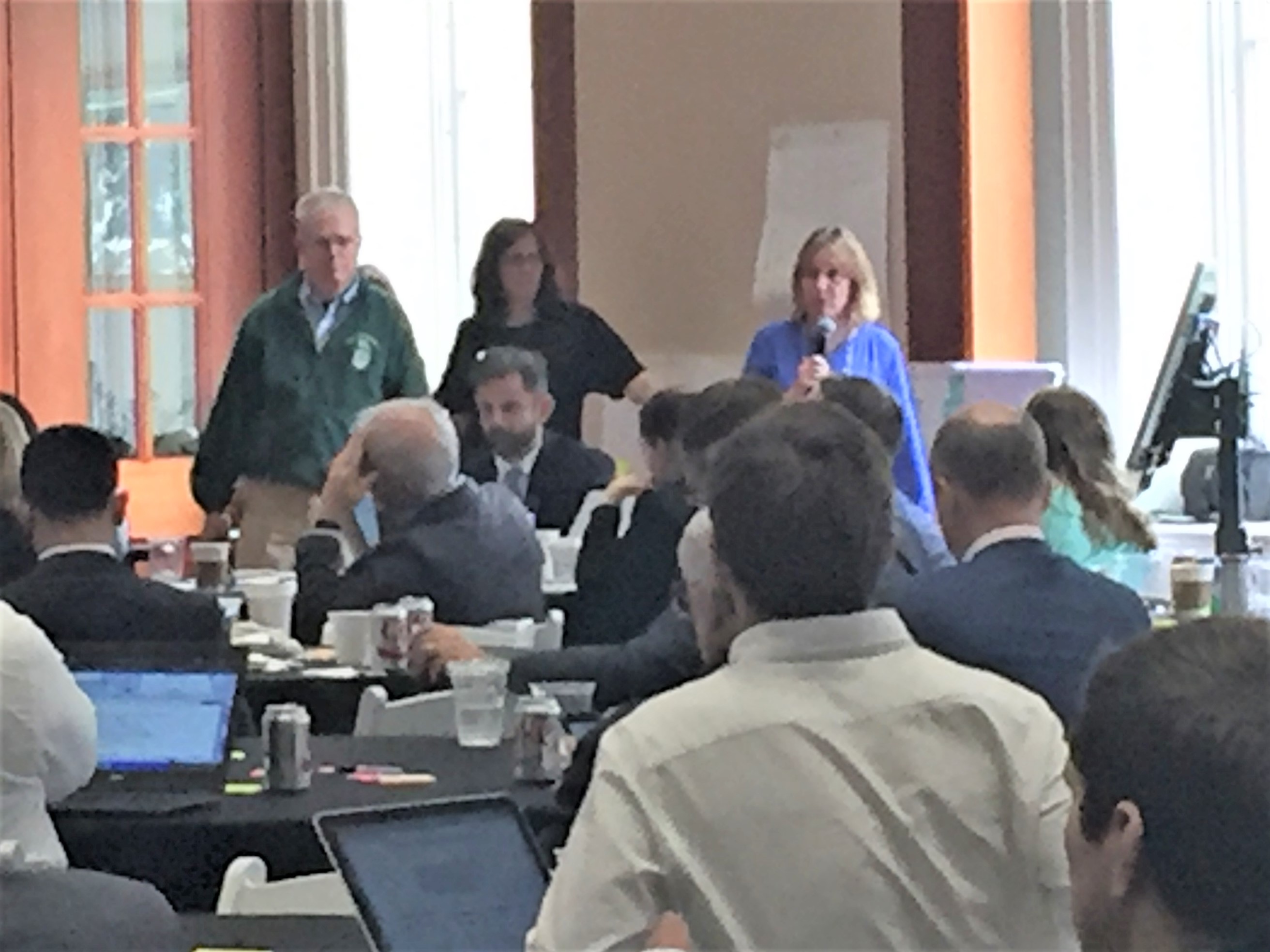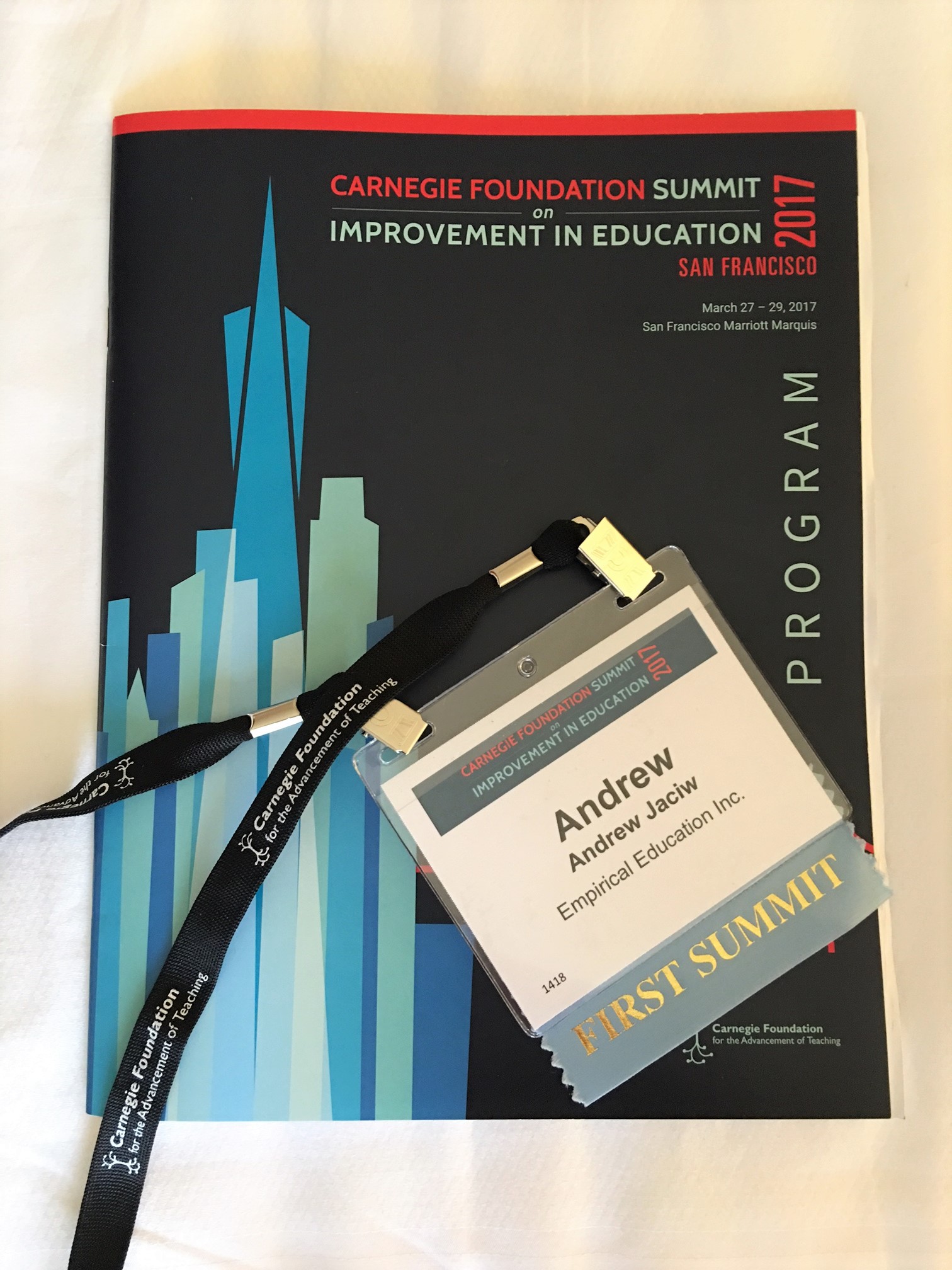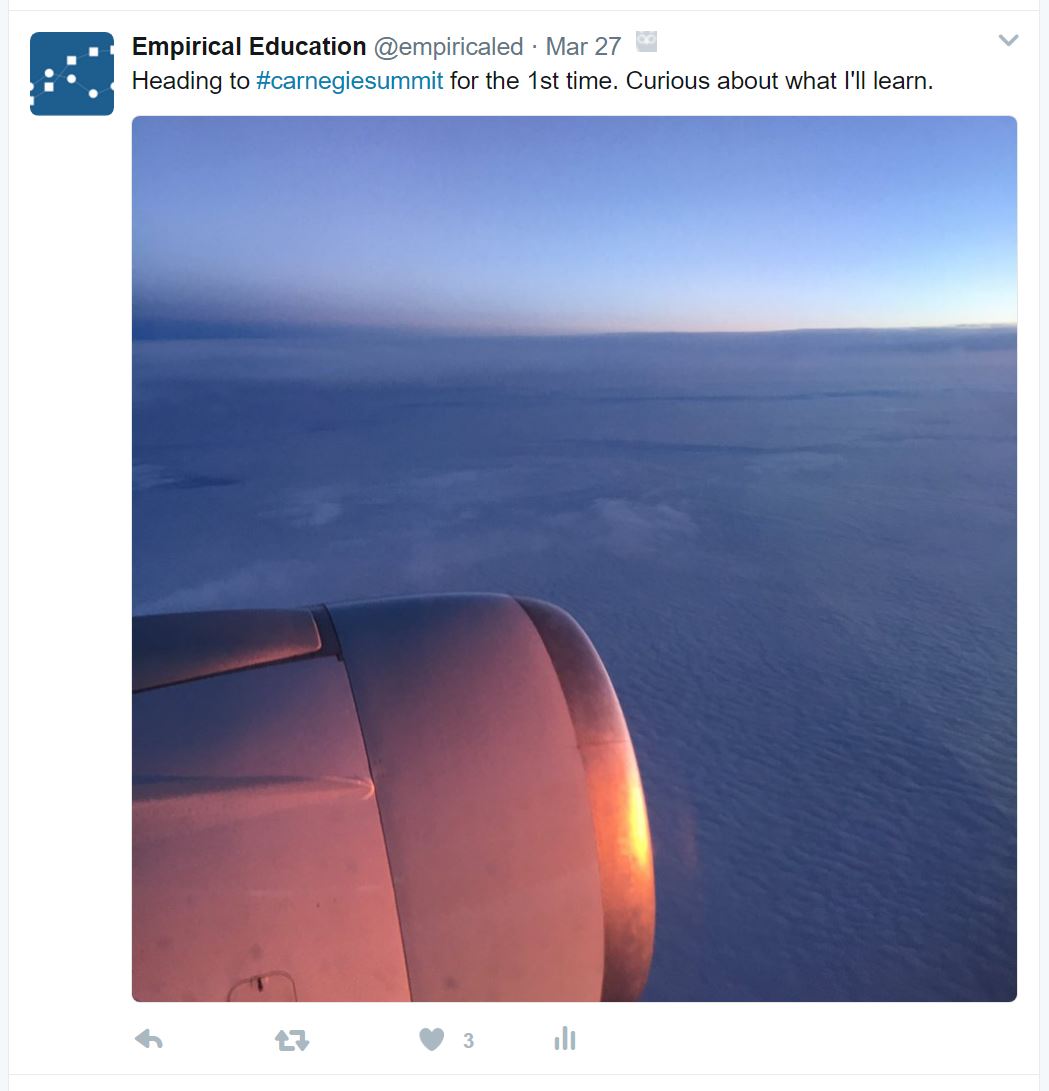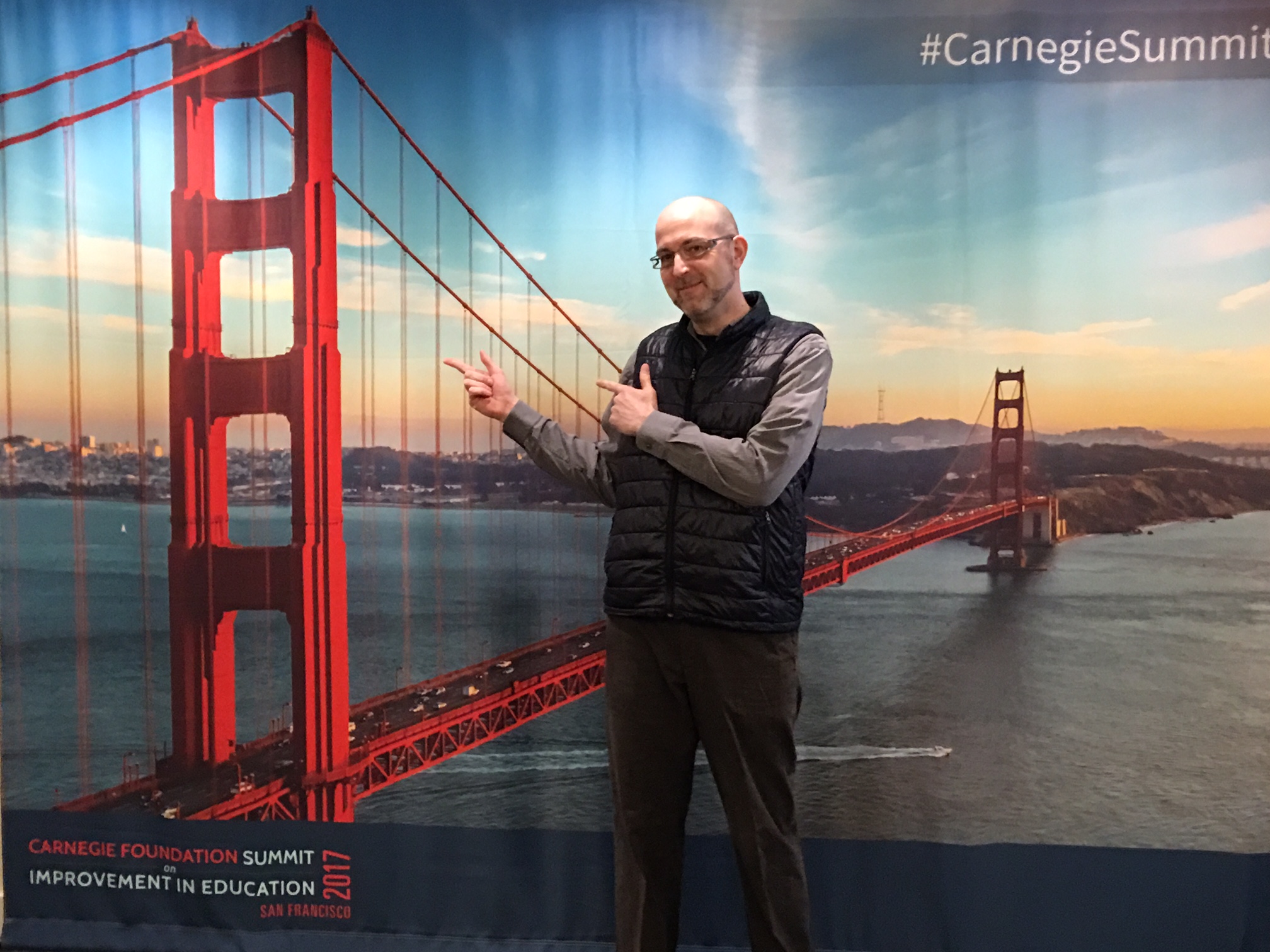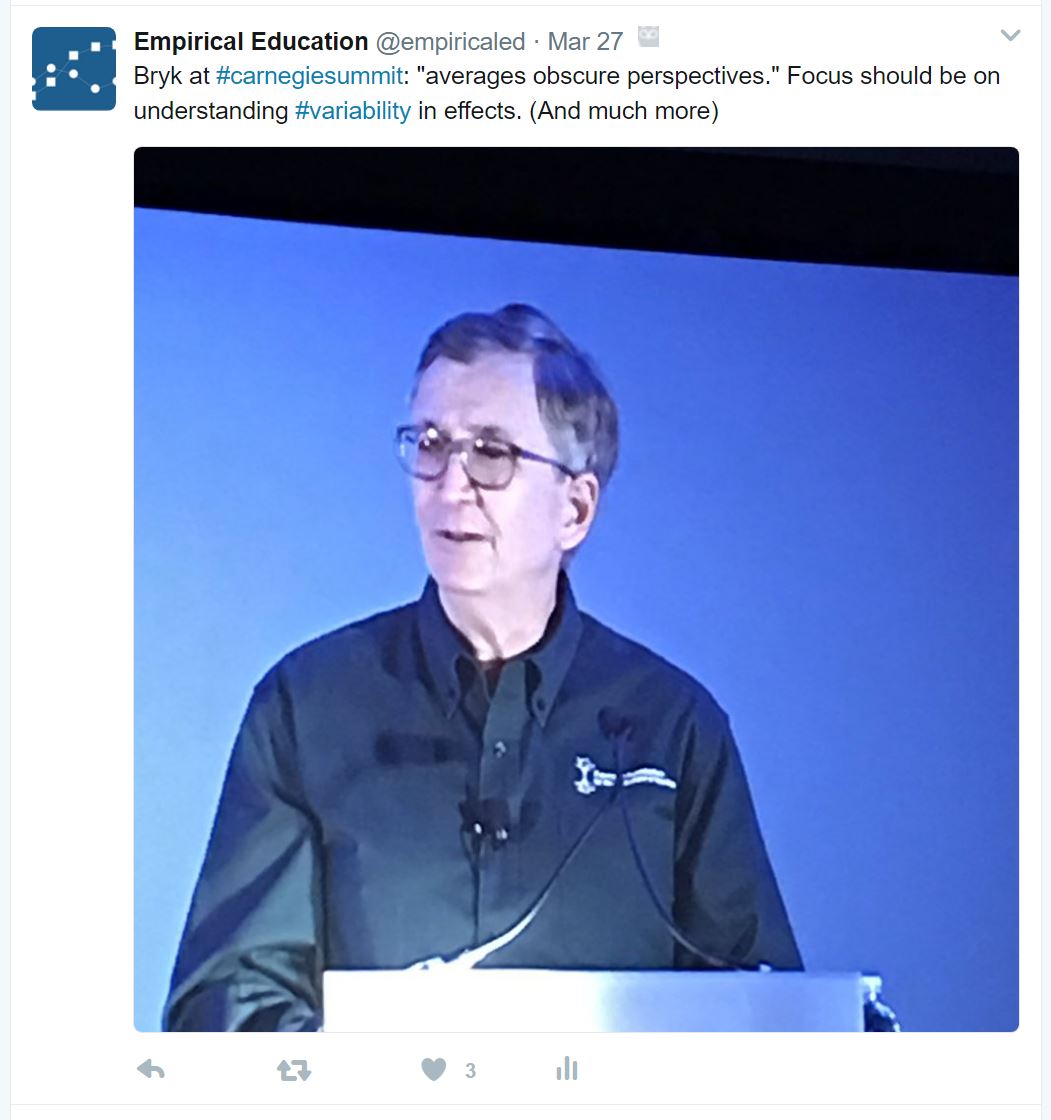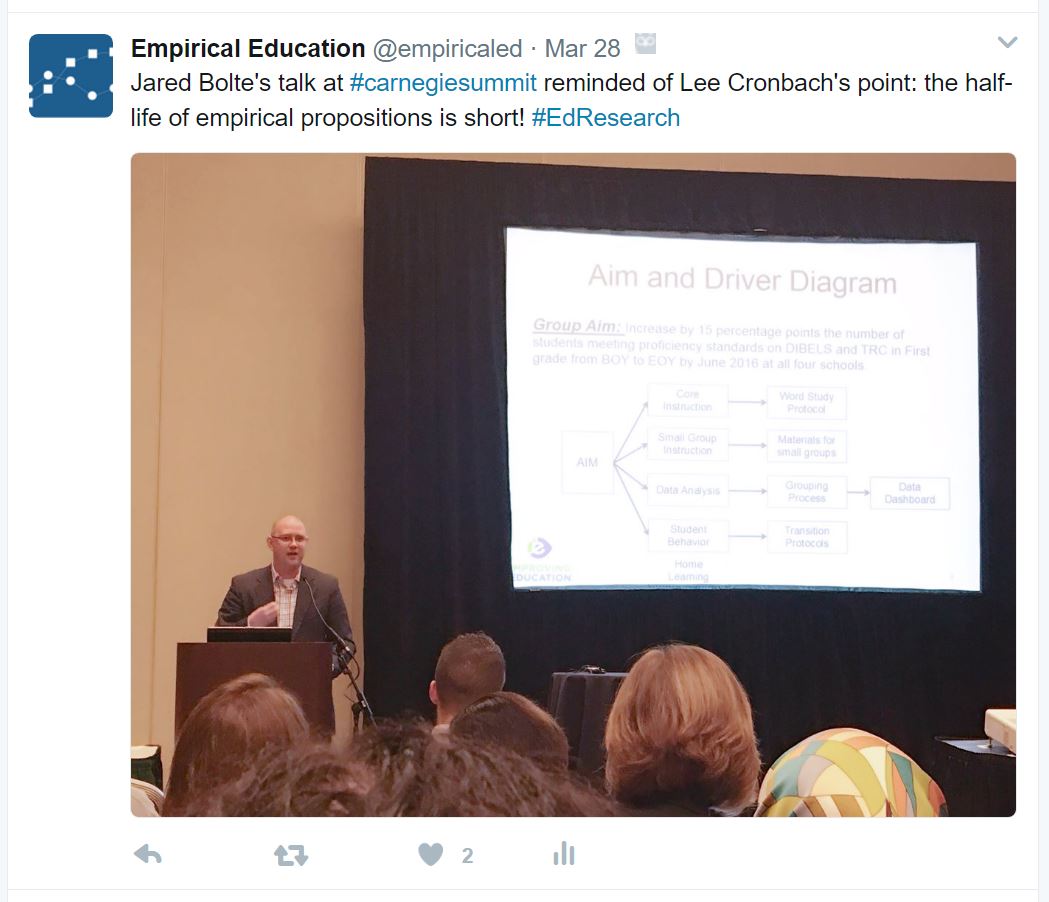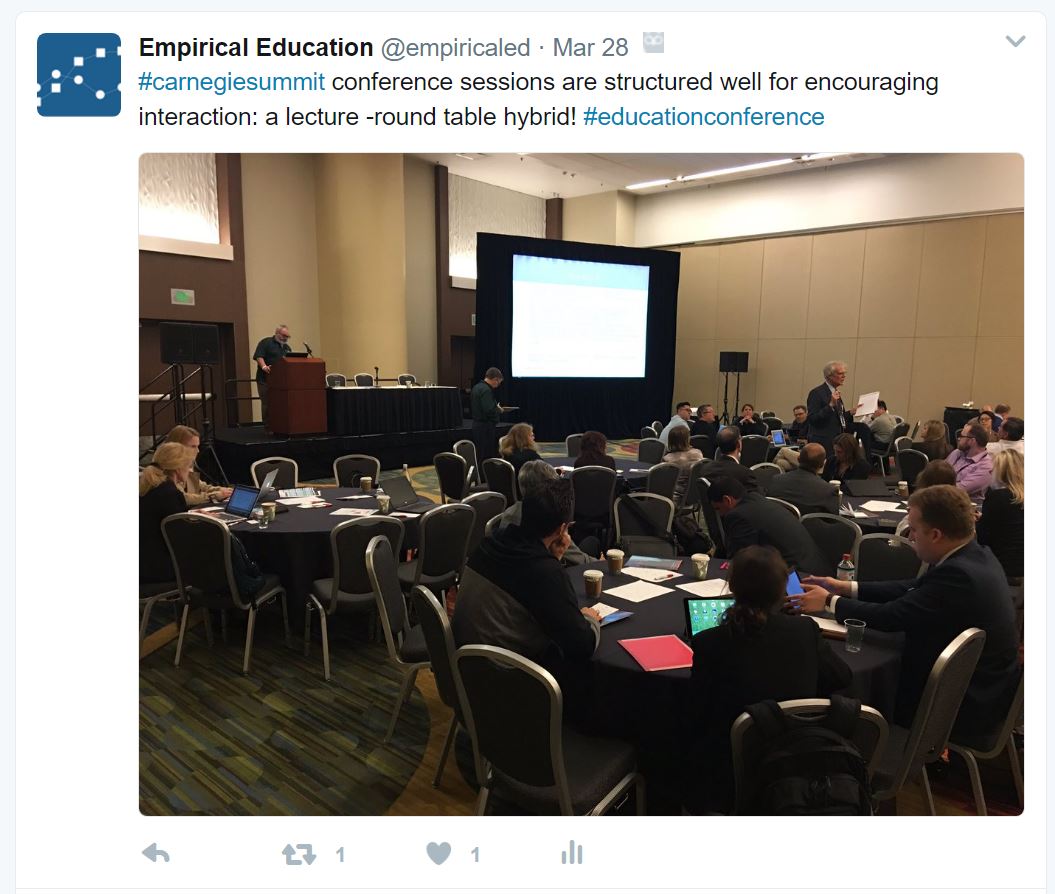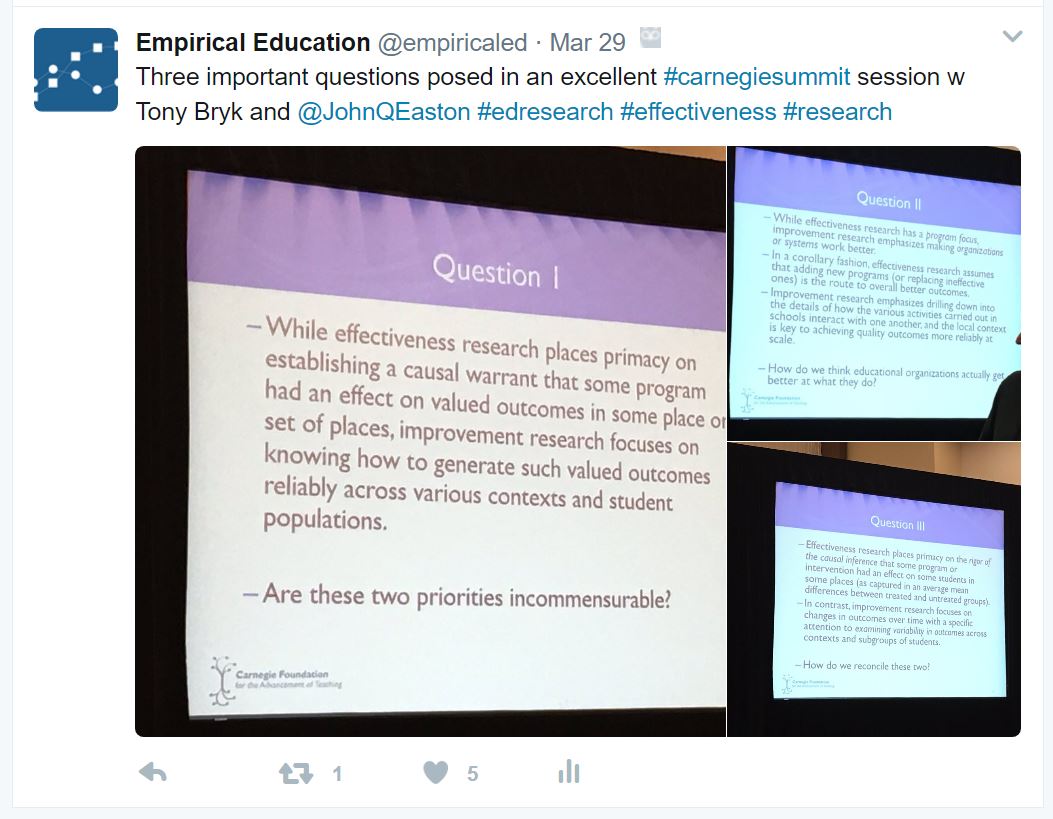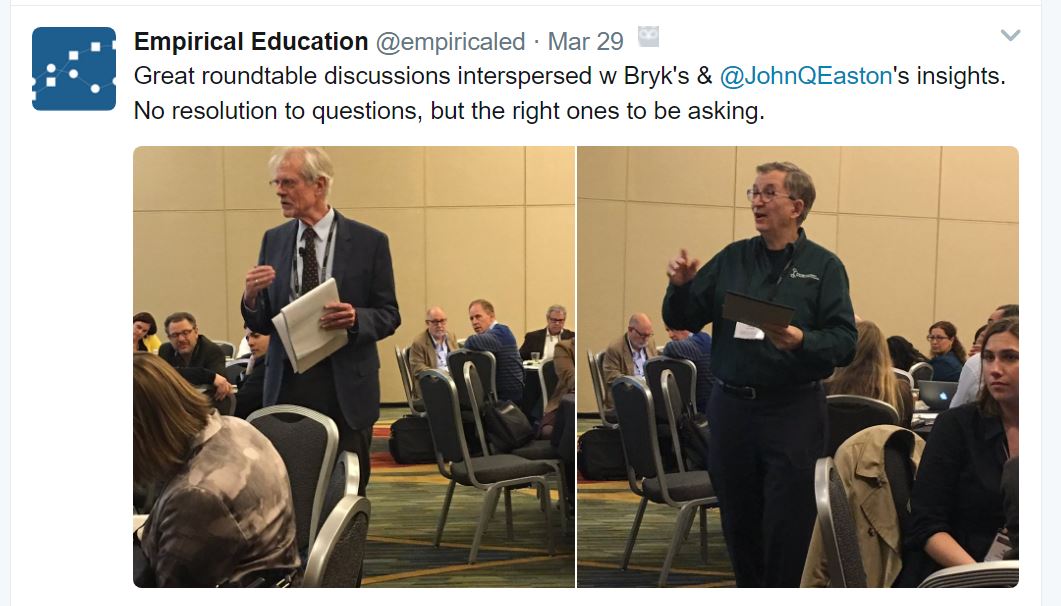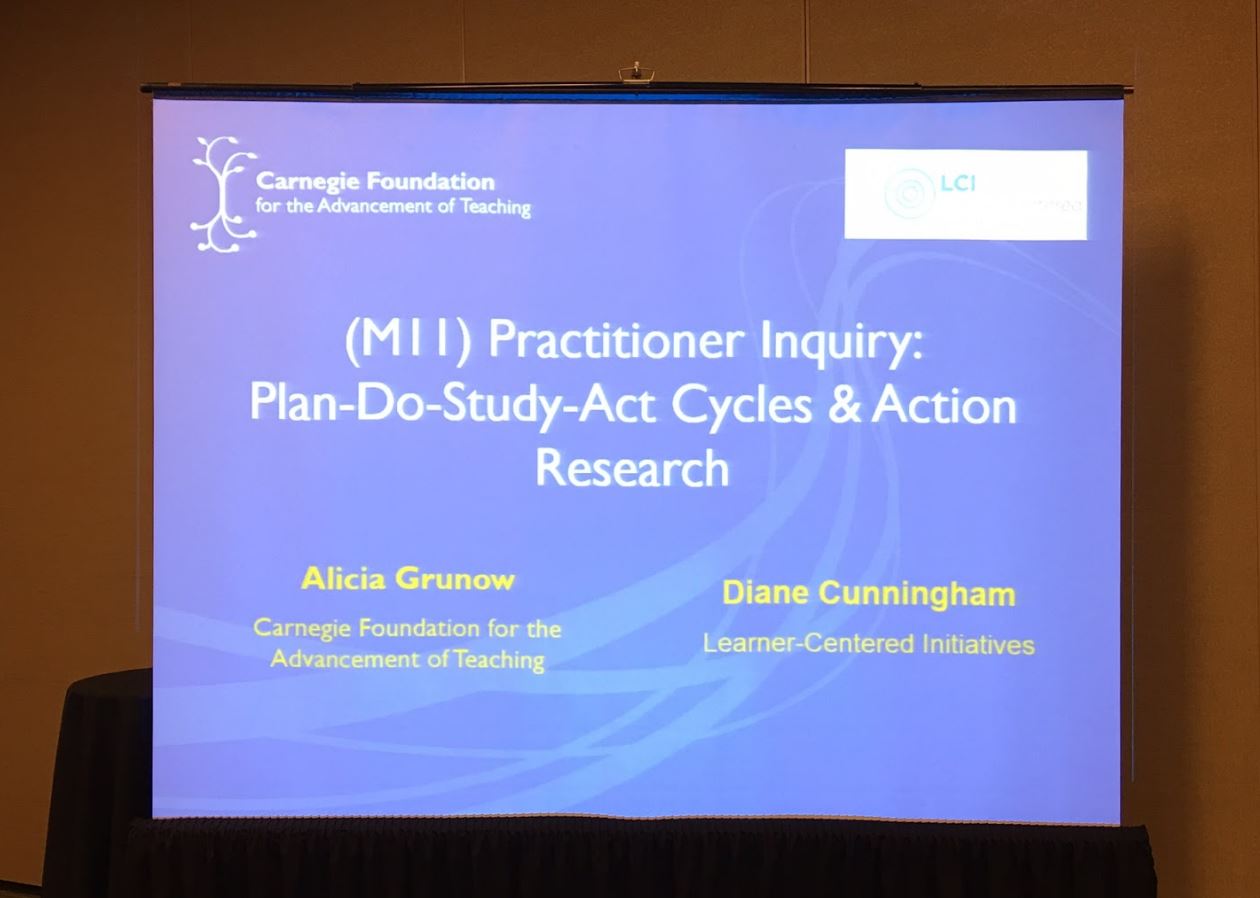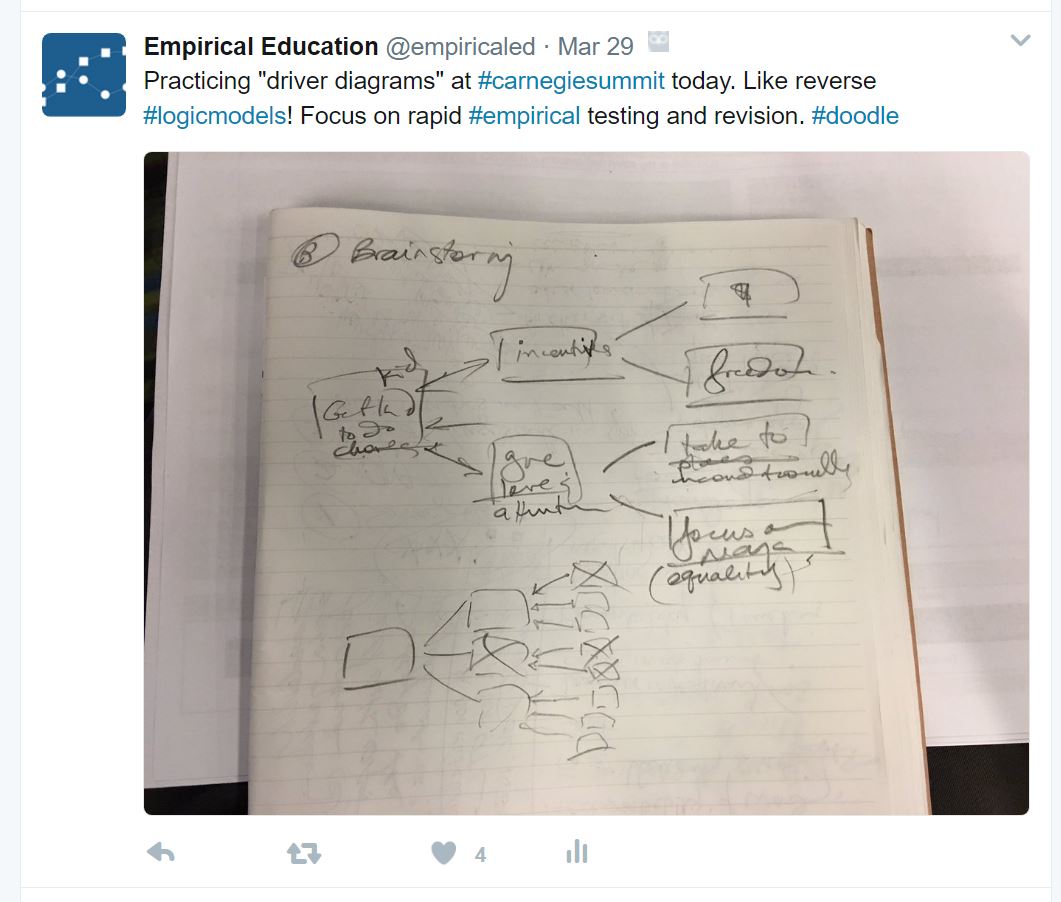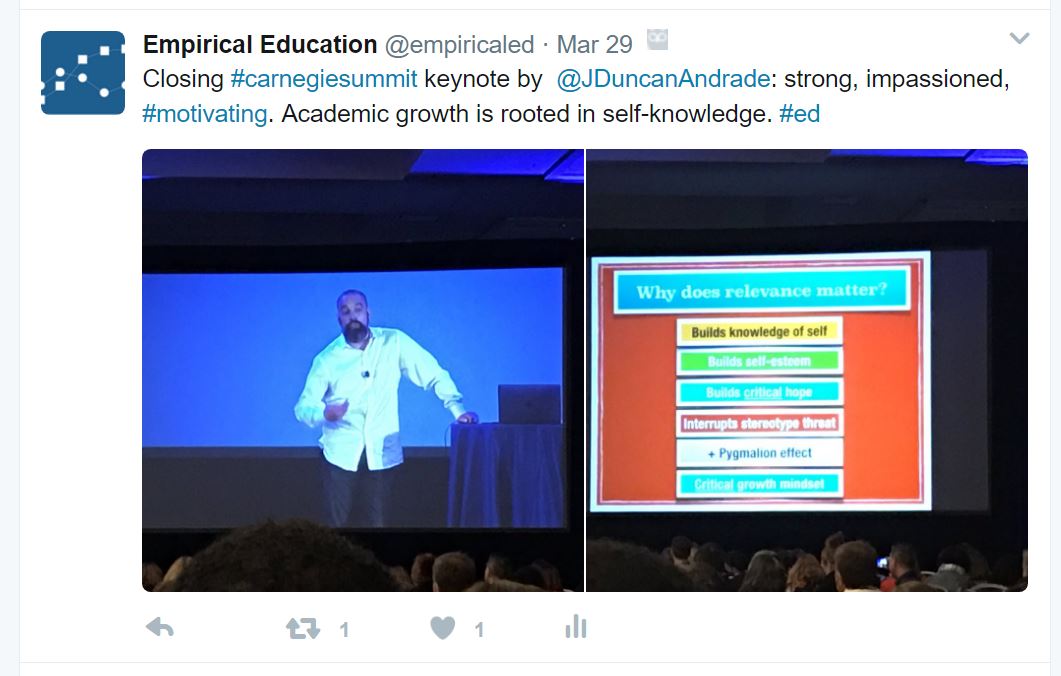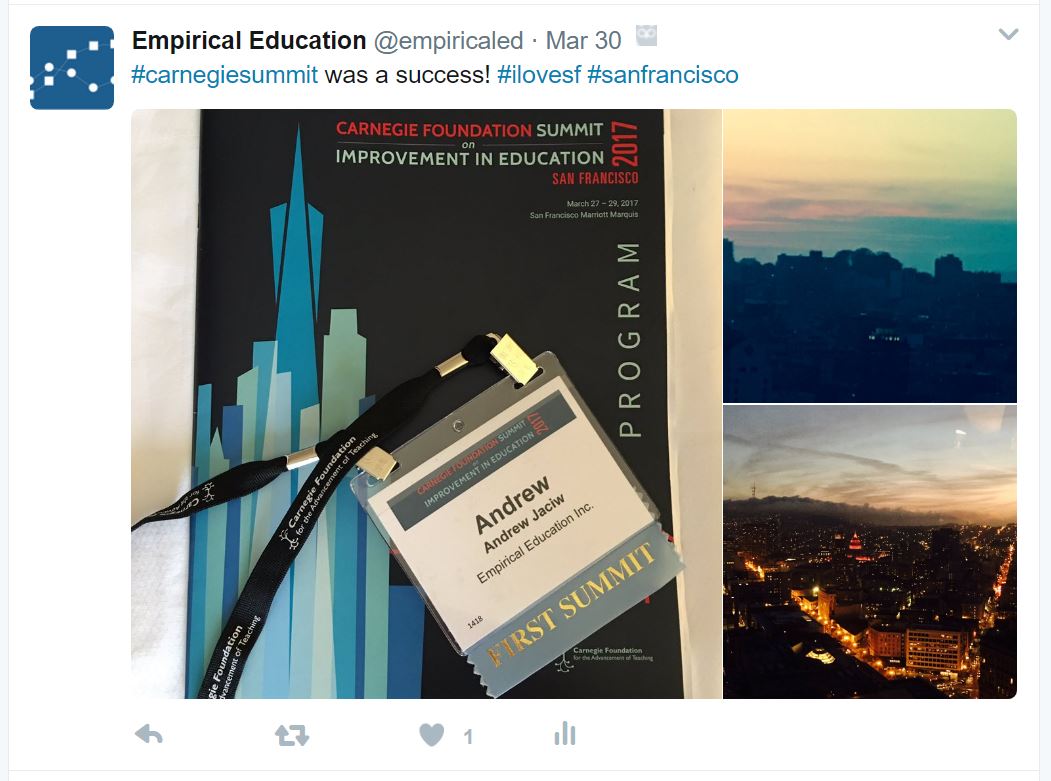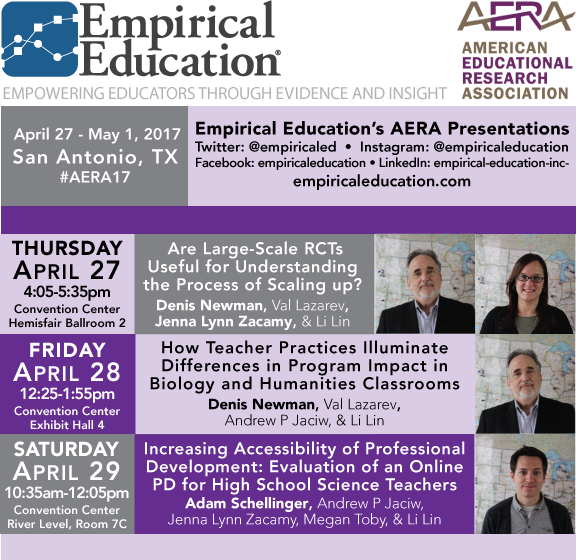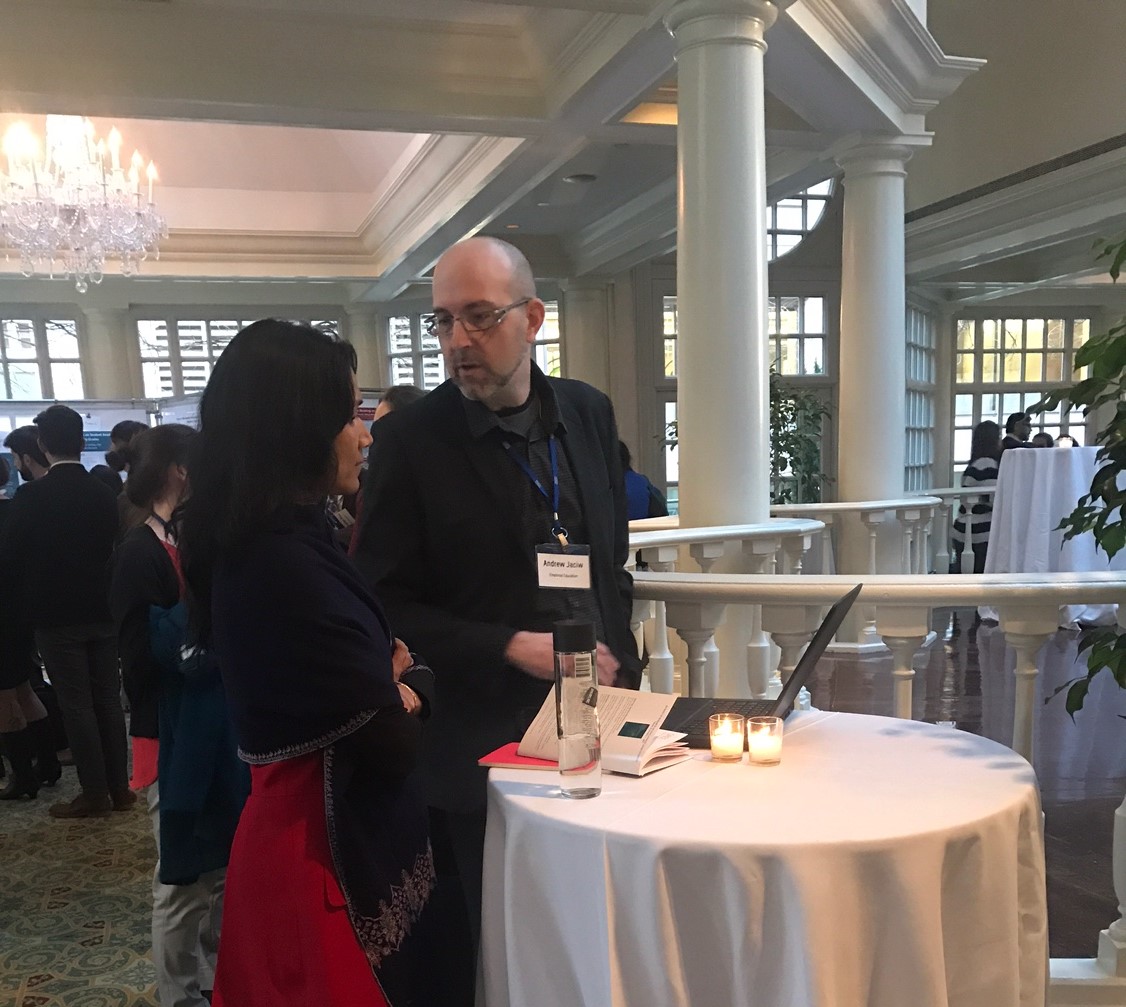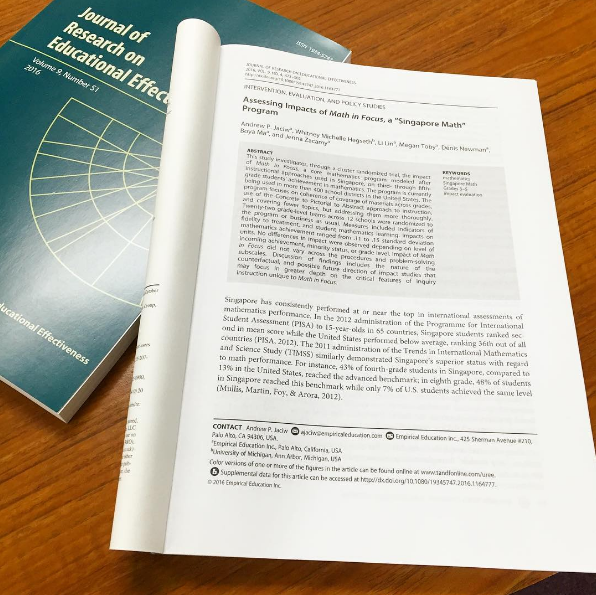ETIN Releases Guidelines for Research on Educational Technologies in K-12 Schools
The press release (below) was originally published on the SIIA website. It has since inspired stories in the Huffington Post, edscoop, and EdWeek’s Market Brief
ETIN Releases Guidelines for Research on Educational Technologies in K-12 Schools
Changes in education technology and policy spur updated approach to industry research
Washington, DC (July 25, 2017) – The Education Technology Industry Network, a division of The Software & Information Industry Association, released an important new report today: “Guidelines for Conducting and Reporting EdTech Impact Research in U.S. K-12 Schools.” Authored by Dr. Denis Newman and the research team at Empirical Education Inc., the Guidelines provide 16 best practice standards of research for publishers and developers of educational technologies.
The Guidelines are a response to the changing research methods and policies driven by the accelerating pace of development and passage of the Every Student Succeeds Act (ESSA), which has challenged the static notion of evidence defined in NCLB. Recognizing the need for consensus among edtech providers, customers in the K-12 school market, and policy makers at all levels, SIIA is making these Guidelines freely available.
“SIIA members recognize that changes in technology and policy have made evidence of impact an increasingly critical differentiator in the marketplace,” said Bridget Foster, senior VP and managing director of ETIN. “The Guidelines show how research can be conducted and reported within a short timeframe and still contribute to continuous product improvement.”
“The Guidelines for research on edtech products is consistent with our approach to efficacy: that evidence of impact can lead to product improvement,” said Amar Kumar, senior vice president of Efficacy & Research at Pearson. “We appreciate ETIN’s leadership and Empirical Education’s efforts in putting together this clear presentation of how to use rigorous and relevant research to drive growth in the market.”
The Guidelines draw on over a decade of experience in conducting research in the context of the U.S. Department of Education’s Institute of Education Sciences, and its Investing in Innovation program.
“The current technology and policy environment provides an opportunity to transform how research is done,” said Dr. Newman, CEO of Empirical Education Inc. and lead author of the Guidelines. “Our goal in developing the new guidelines was to clarify current requirements in a way that will help edtech companies provide school districts with the evidence they need to consistently quantify the value of software tools. My thanks go to SIIA and the highly esteemed panel of reviewers whose contribution helped us provide the roadmap for the change that is needed.”
“In light of the ESSA evidence standards and the larger movement toward evidence-based reform, publishers and software developers are increasingly being called upon to show evidence that their products make a difference with children,” said Guidelines peer reviewer Dr. Robert Slavin, director of the Center for Research and Reform in Education, Johns Hopkins University. “The ETIN Guidelines provide practical, sensible guidance to those who are ready to meet these demands.”
ETIN’s goal is to improve the market for edtech products by advocating for greater transparency in reporting research findings. For that reason, it is actively working with government, policy organizations, foundations, and universities to gain the needed consensus for change.
“As digital instructional materials flood the market place, state and local leaders need access to evidence-based research regarding the effectiveness of products and services. This guide is a great step in supporting both the public and private sector to help ensure students and teachers have access to the most effective resources for learning,” stated Christine Fox, Deputy Executive Director, SETDA. The Guidelines can be downloaded here: https://www.empiricaleducation.com/research-guidelines.

